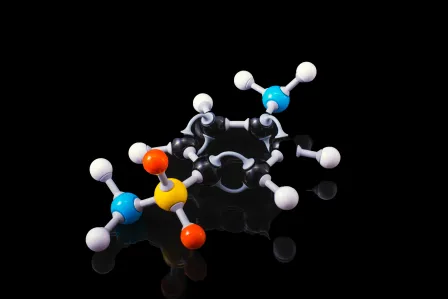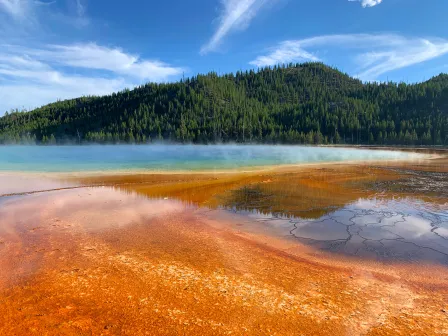Senior Mallory Kallish pushed herself outside her chemistry comfort zone to take a humanistic look at the building blocks of life.
For her introductory poetry class, Mallory Kallish, an undergraduate peer leader for general chemistry, was asked to create a project putting poetry in conversation with some element, artform, event, theory, or idea outside of poetry. Naturally, she decided to connect poetry to chemistry.

“A major part of my academic and personal journey at Washington University has involved general chemistry,” Kallish said. “I wanted to see if I could take something very familiar and comfortable to me and combine it with a new challenge – poetry.”
Kallish’s project is based on the five major elements essential to life on Earth: carbon, hydrogen, oxygen, phosphorus, and sulfur. Together, these elements are the building blocks of complex life as we know it. They facilitate complex molecular structures, storing and transferring energy, catalyzing reactions, and driving metabolism.
For Kallish, chemical elements are a universal language. “We talked in class about how language is a way to unite people, so I decided to take the same approach to chemistry,” she explained. “Chemistry is essential to me on several levels. It taught me how to convey my ideas to others and gave me a framework for understanding the world. I decided to embrace that idea of unity and human connection and personify the five elements of life.”
Kallish’s training in scientific writing strongly influenced her poems. Her preference for direct language with minimal flourishes led her to compose short lines. For wordplay, she relied on – what else? – chemistry puns.
Below are a few selections from Kallish’s poetry project.

“Sulfur”
Simply put, all you can do is
metal into other people’s business.
You goad others into fights, pushing
and prodding to get a reaction. But as
soon as things get tough, you are the first
to go, determined to escape unaffected.
Though you certainly make things happen,
you are impossible to fully satiate.
“Oxygen”
Oh, I can’t help but to breathe
you in. When we are apart
I get dizzy, lightheaded.
Your presence makes me expand,
you leave me full.
The rush of you to my brain
leaves my thoughts whirring,
a plane that I cannot land.
“Phosphorus”
Paragon of perfection, you’re built
in a design that I cannot
begin to understand. You
build and build, holding
everything inside until
you explode. Why do
you work so hard to
raise yourself up, only
to tear yourself down again
and again?




